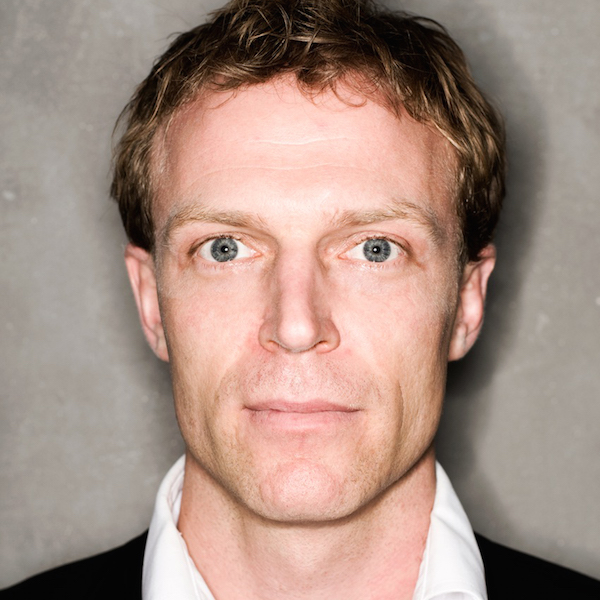
Date: 20 July – 5 August 2018
20 – 22 July: first working session led by the Director Antonio Latella
23 July – 5 August: workshop with the Master
Language: English
For: actors, directors, dancers with experience in physical theatre
Participants: 16>20
There will be a short presentation to the public of the final outcome of the workshop.
WORKSHOP
In this workshop Jakop Ahlbom will use the methods he applies in working with his actors/performers during the process of creation. The exercises focus on developing physical awareness, sensibility and breaking down patterns and habits that enable discovering new ways of moving. Improvisation in connection with the surrounding and the psychical tension in our bodies based on different emotions therefore will play a vital role. Working in groups, the director will show how small changes can have a huge impact in the meaning and experience of a situation. The overall theme is ‘The Kiss’. Parallel to the exercises the background and different meanings of the kiss and the meaning of the kiss through time will be explored. Was kissing different in 1920 than in 1980 or 1960?
Jakop Ahlbom
Jakop Ahlbom was born in Sweden in 1971. In the early 1990s he moved to the Netherlands where he studied Mime at the Amsterdam School of the Arts. Upon his graduation in 1998 he was presented with the Top Naeff award for the most promising student. The award jury described him as an eager, outstanding and exuberant talent. After graduating he worked with a variety of theatre makers as a performer, choreographer and director. In 2000 he started working on his own, idiosyncratic oeuvre, which includes Vielfalt (2006), Lebensraum (2012), Horror (2014).Ahlbom’s work is not defined by a single style. Ahlbom’s plays follow the seemingly illogical logic of dreams in a world at the edge of the subconscious. His stylistic toolkit is packed with elements from slapstick, illusionism, acrobatics, dance, absurdism, music, visual art, poetry and magic, and he frequently draws on cinematic influences. Visual elements are central to Ahlbom’s work, and he couples them with his often psychological subject matter to forge an unbreakable relationship between them. He disrupts the audience’s perceptions with repetitions, loops and recurring movement phrases that each time shift reality just a little – slowly but surely knocking it out of kilter, distorting it almost imperceptibly until we find ourselves in the parallel dimensions he has devised. He creates his own universe, one that is both logical and inimitable. Ahlbom’s work, in all its manifestations, is unique.
Foto Jakop Ahlbom: Arjan Benning
Applicants are required to provide the requested personal data as well as:
- a passport-size photograph
- a full-figure photograph
a curriculum vitae in PDF format
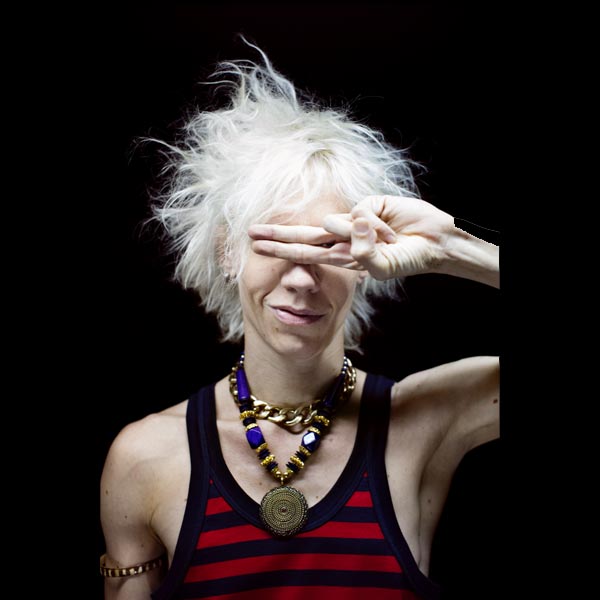
Date: 20 July – 5 August 2018 20 – 22 July: first work session led by the Director Antonio Latella 23 July – 5 August: workshop with the Master
Language: Italian For: performers, actors, dancers and anyone interested in working on the proposed object Participants: 16>20
There will be a short presentation to the public of the final outcome of the workshop.
WORKSHOP
KISSING. Or a painless study of Andy Warhol's "Kiss"
1964. Warhol releases his second [anti-]film: "Kiss", 54 minutes of silence accompanied by a sequence of 13 kisses, each lasting 3'30". "Kiss" challenges American laws and Hollywood conventions, breaking the rules of censorship that established 3 seconds as the limit for the length of a kiss on screen. Kissing between two people of the same sex, or of different races or ethnic groups, were forbidden at the time. There was no need to explain anything. It is all there, in the frame, in the duration, in the succession of bodies.
Can a kiss pack the same power today? And, in more ample terms, can an action still be a manifesto?
This will be our starting point. To put bodies in action back on the field. To try and turn this into writing without overwriting. To invent stage devices in order to make them react with the present. But chemically, like a kiss.
Silvia Calderoni
Silvia Calderoni, actress and performer, trained artistically at a very young age with choreographer Monica Francia and Teatrino Clandestino. After attending the two European schools for actors directed by Cesare Ronconi, she landed a role in Paesaggio con fratello rotto with Teatro Valdoca. Since 2006 she has been a member of the Motus company and has starred in the productions of Rumore Rosa, ICS – Racconti crudeli della giovinezza, Let the Sunshine In, Too-Late, Iovadovia, Alexis. Una tragedia greca, nella tempesta, Caliban Cannibal. She was the star with Judith Malina in The Plot is the Revolution, a work that allowed her to share the stage with the founder of Living Theatre. She is currently acting in the solo MDLSX, of which she authored the script together with Daniela Nicolò, and the production of RAFFICHE by Motus. She won the UBU 2009 Prize as Best Actress Under 30. In 2013 she starred in the film La leggenda di Kaspar Hauser by Davide Manuli with actor Vincent Gallo and was in the cast of the film Riccardo va all'inferno by Roberta Torre (2017) and Amori che non sanno stare al mondo by Francesca Comencini (2017).
Since 2006 she has been carrying out independent research in experimental workshops, of which some of the most significant steps include Strike! (Festival di Santarcangelo 2010), Arti Urbani (Festival Folle 2014) and ORA, a series of different phases in different formats (Angelo Mai 2015) with Ilenia Caleo, with whom for the past two years she has directed a performing arts studio course as part of the Visual Arts programme at the Iuav University in Venice.
Photo Silvia Calderoni: Sergio Ximenay
Applicants are required to provide the requested personal data as well as:
- a passport-size photograph
- a full-figure photograph
- a curriculum vitae in PDF format
a proposal for a music track to feature as the soundtrack for Warhol's "Kiss"
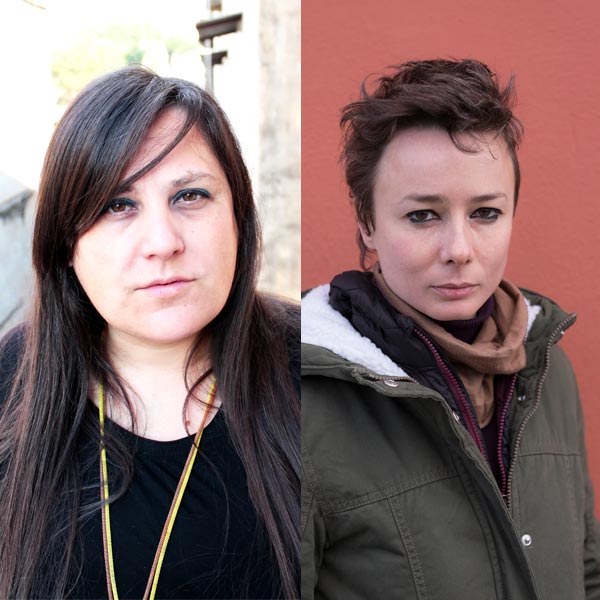
Date: 20 July – 5 August 2018
20 – 22 July: first work session led by the Director Antonio Latella 23 July – 5 August: workshop with the Masters
The workshop is the first phase in the Call for young Italian authors under 40 – 2018/2020 (tutors: Linda Dalisi and Letizia Russo) - register before March 15th 2018
Language: Italian
For: Italian authors under 40
Participants: 16
There will be a short presentation to the public of the final outcome of the workshop.
WORKSHOP
And he kissed him.
"Judas, would you betray the Son of Man with a kiss?"
(LC 22,48)
The master's programme, designed for authors, takes its cue from one of the most famous kisses in history, to explore the apparent and deeper nature of a gesture that may well conceal something other than a simple betrayal. Taking this short-circuit between two bodies as an archetype, we will work to invent new possibilities for the universe of reasons, causes, finalities and mysteries that hide behind it. Together we will explore what languages, narrative registers and forms of writing, can inhabit the stage, within the complexity of each insight.
Linda Dalisi
After meeting Leo de Berardinis in 1999 she moved to Bologna where she volunteered in his theatre. Since 2002, she has worked as an assistant director with Pierpaolo Sepe, Monica Nappo, Renato Carpentieri. For Dante&Descartes she published Messa in scena della mafia, an essay on Cani di bancata by Emma Dante. During the 2010-11 season, she was a dramaturgist at the Nuovo Teatro Nuovo in Naples; for Latella's direction she was responsible for [H] L_DOPA (2010), Don Giovanni, a cenar teco (2011), Francamente me ne infischio (with Federico Bellini and Latella) and C'è del pianto in queste lacrime (2012), MA (2015), Pinocchio (2017). She was both director and dramaturgist for Misfit Like a Clown. Since 2010 she has led a workshop for non-actors from different countries around the world, with which she produced Poi Piovve la città, Dopo cento giravolte, Che terra è questa, Adiò and in 2015 Se una notte di mezza estate i Bottom Brothers, on which she based her screenplay for the eponymous film, directed by Adriano Foraggio. A dramaturgist and founding member of stabilemobile, in 2012 she wrote and directed Mentre d'intorno infuria il mondo, and in 2013 Il silenzio della ragione inspired by Anna Maria Ortese for the Teatro Stabile di Napoli. In 2015-16 she was a dramaturgist-tutor for the special project Santa Estasi, for the Advanced Professional School of the ERT Emilia Romagna Teatro. In 2017 she wrote the script for L'armata dei sonnambuli from the eponymous novel by Wu Ming, directed by Pino Carbone, and made her directorial debut at the Festival Primavera with Aiace.
Letizia Russo
Letizia Russo was born in Rome in 1980. She began to write for the theatre in 1998. In 2000, she staged her first play, Niente e nessuno (una cosa finita). She won the Premio Tondelli in 2001 and the Premio Ubu in 2003 for Tomba di cani. An anthology of her works was published by Ubulibri. Her plays have been produced in Italy and abroad, including: Binario Morto – Dead End (2002, commissioned by the National Theatre of London for the Shell-Connections Festival), Primo Amore (2003), Babele (2004), Edeyen (2005), Dare al Buio (2007), Blitz (2010), Per una donna and Cooking (2013), Se ci sei batti un colpo (2015), Filottete (2017). She was responsible for the adaptation of several classics, including La trilogia della villeggiatura, by Carlo Goldoni, Madame Bovary, by Gustave Flaubert, Ivan, from The Brothers Karamazov by Fedor Dostoevsky, Uno zio Vanja, from Uncle Vanya by Anton Cechov. In Italy, among others, she has worked with Antonio Latella, Cristina Pezzoli, Serena Sinigaglia, Andrea Baracco, Vinicio Marchioni. Her works have been translated into English, French, German, Spanish, Portuguese, Greek, Romanian, Slovakian. She also translates from English and Portuguese into Italian. In 2006-2008 she taught at the Scuola Holden in Turin.
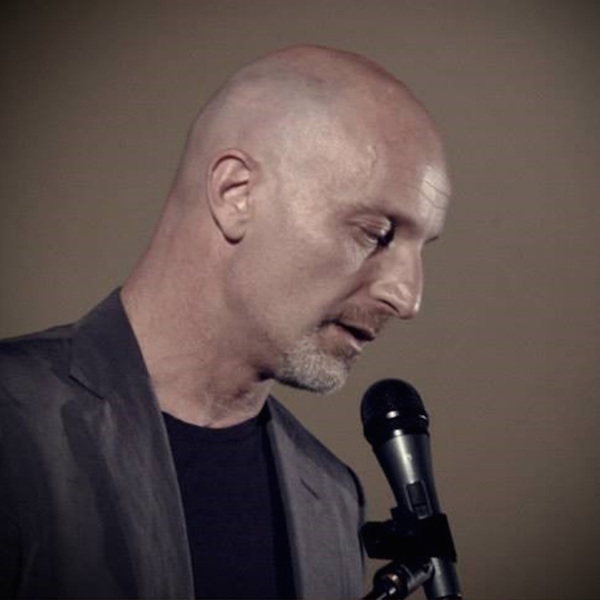
Date: 20 July – 5 August 2018
20 – 22 July: first work session led by Director Antonio Latella
23 July – 5 August: workshop with the Master
Language: Italian
For: performers / actors
Participants: 20
There will be a short presentation to the public of the final outcome of the workshop.
WORKSHOP
I respond enthusiastically to the invitation and in articulating the proposed theme which in itself is receptiveness and reciprocity, like the physical and emotional architecture of every relationship between audience and stage. I think of the KISS, with the beauty of breathing, with the physical parts that kiss and are kissed, and the synapses, activated, set in motion, in circulation; set in the time that courts memories, feelings and transforms them, changes, like emotion. I think of the necessary words, the words we seek, by definition, the ones that can't, the ones that are altered, changed by the distance and the chemistry of feeling.
I think of the kiss that never has words, I think of the moment in which words are silent, in which they take the liberty, of when we allow ourselves to do without them, where there's no need, where there's no word that can speak more eloquently than silence. I think of the possible silence, of when silence is possible and always rare. With the sound perhaps of silence, how it is intoned tone on tone, step by step, one foot before the other, a metre.
I would like to work on this boundary, starting with the game known as RHYMES, the words that recite sound. The concept of appointment between the words that meet and come together.
Rhyming couplets, alternating, enclosed, linking, equivocal, perfect, imperfect rhymes.
The kiss, like the gesture of the text, the gesture of the word, the highest, deepest gesture, metamorphosis, destination, sublimation of it all.
Roberto Latini
An actor, author and director, he was born in Rome in 1970. He trained in Rome at the Mulino di Fiora, a studio for acting and experimental theatre directed by Perla Peragallo, from which he graduated in 1992. Over the years he founded the companies Teatro Es, Clessidra Teatro and the Fortebraccio Teatro, a company recognized by the Ministry for the Cultural Heritage and Activities since 1999. He graduated with a thesis in Methodology and Criticism of the Performing Arts at the Department of Literature and Philosophy of the Università degli Studi of Roma "La Sapienza". He has won, among others, the Premio Sipario 2011 for Noosfera Lucignolo, the Premio Ubu 2014 as Best Actor for his role as Arlecchino in Il servitore di due padroni directed by Antonio Latella, the Premio della Critica in 2015 for I giganti della montagna and the Premio Ubu 2017 as Best Actor for the Cantico dei Cantici. In recent years, he has met actresses and actors in the modules of a workshop entitled "The Actor Without a Performance". He directed the Teatro San Martino in Bologna from 2007 to 2012. Recent work in the theatre: 2018 Il teatro comico by Carlo Goldoni directed by Roberto Latini; 2017 Quartett by H. Müller directed by Roberto Latini; 2017 Cantico Dei Cantici directed by Roberto Latini; 2016 Amleto + Die Fortinbrasmaschine from William Shakespeare and H. Müller directed by Roberto Latini; 2015 Metamorfosi (of forms morphed into new bodies) from Ovid, directed by Roberto Latini; 2014 I giganti della montagna by Luigi Pirandello directed by Roberto Latini; 2013 Il Servitore di due Padroni from Carlo Goldoni, by Ken Ponzio directed by Antonio Latella; 2013 Noosfera Museum directed by Roberto Latini; 2012 Scene da Woyzeck by Büchner Berg directed by Federico Tiezzi; 2012 Seppure voleste colpire directed by Roberto Latini; 2012 Ubu Roi by Alfred Jarry directed by Roberto Latini; 2011 Noosfera Titanic directed by Roberto Latini; 2010 Noosfera Lucignolo directed by Roberto Latini; 2010 L’uomo dal fiore in bocca by Luigi Pirandello, directed by Roberto Latini.
Applicants are required to provide the requested personal data as well as:
- a passport-size photograph
- a full-figure photograph
- a curriculum vitae in PDF format
a phrase containing the word "kiss"
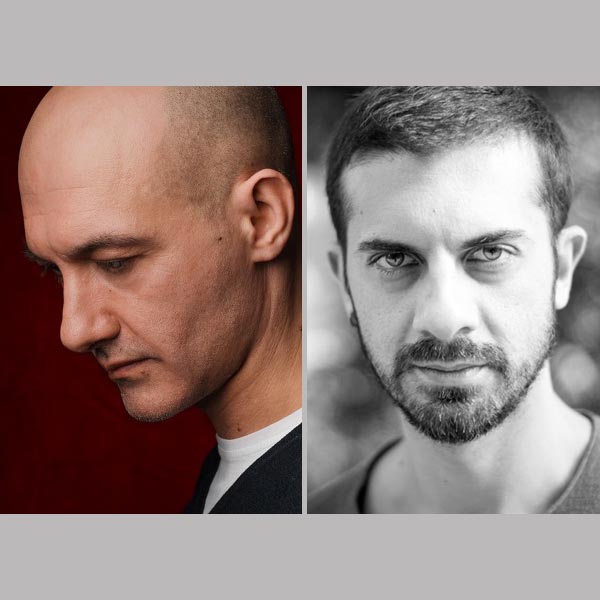
Dates: 20 July – 5 August 2018
20 – 22 July: first work session led by Director Antonio Latella
23 July – 5 August: workshop with the Masters
Language: Italian and English
For: actors / dancers / performers (particularly interested in working on the body)
Participants: 16 + 2 auditors
There will be a short presentation to the public of the final outcome of the workshop.
WORKSHOP
STRAZIAMI MA DI BACI SAZIAMI
CREOLA by Ripp (Luigi Maglia), lyrics by Anacleto Francini in the version by Milva, Nilla Pizzi or Daniele Serra
FILEMATOLOGY. "A kiss moves 17 muscles of the tongue as well as 9 milligrams of water, 0.18 of organic substances, 0.7 of fats, 0.45 of salt, hundreds of bacteria and millions of germs. So what lies behind a gesture that is so everyday yet at the same time capable of such intensity?" Alain Montandon
Why kiss?
How do you kiss?
Who did you kiss?
What do you kiss?
Have you ever kissed while dancing, singing, eating, crying, dreaming, yelling, biting, faking?
Do you prefer to kiss or be kissed?
What shape are your lips?
What shape are your lips on the other's body?
Who is the other?
Say, do, kiss, letter or testament?
A journey into the body. A study about relationships and what they mean: a constant need for contact and hence for dialogue, realized or denied. The lips as the "frontline" of the body. The kiss as an exchange of complex communications. The body as a signifier and movement as the signified of a continuous desire. This is the beginning of our research. This is our exercise. This is our game and this is our cry: tear me apart but fill me with kisses (straziami ma di baci saziami).
Francesco Manetti
Actor, trainer and director. He graduated in acting from the Accademia Nazionale d'Arte Drammatica Silvio D'Amico in Rome where, since 1998, he has taught Dramatic Movement and Combat. He won the Golden Distinction of the British Academy of Dramatic Combat. He has taught at the National School of Drama in New Delhi, at the A.C.T. in San Francisco, at the State School in Saint Petersburg. He has worked in England, Russia, the United States, Colombia, Canada, Croatia, India, Israel, Germany, Argentina and New Zealand. He has directed I Sette a Tebe, Chroma, La Tempesta, Pene d'amor perdute, Racconto d’inverno, Il non nome delle cose, A coup de nez, Cancroregina, Il Borghese gentiluomo and Re Lear. Since 2007 he has worked with Antonio Latella as head of movement and in 2013 joined his company stabilemobile, concentrating in particular on teaching; he was directed by Latella in Don Chisciotte, A.H. and Natale in Casa Cupiello.
Alessio Maria Romano
Palermo 1978. He graduated as an actor from the "Scuola del Teatro Stabile Torino". At the same time he earned a diploma in "Laban/Bartenieff Movement Analysis " (C.M.A.) in the US and UK, pursuing his interest in stage movement and the teaching of movement. He studied with Luca Ronconi in the first course of the Centro teatrale Santa Cristina. He studied with Raffaella Giordano in the two-year programme "Writing for Contemporary Dance". He alternates his work as an actor with his close collaboration with Maria Consagra, for whom he served as assistant from 2002 to 2008. He worked for the Compagnia del Teatro Stabile di Torino as an actor from 2000 to 2005 with many different directors such as M. Avogadro and G. Cobelli. He worked with Luca Ronconi as an assistant for stage movement in the project "Domani" and the production of Itaca. For Ronconi he also designed the stage movement for Fahrenheit 451 and the choreographic movements of the opera Turandot at the Teatro Regio in Turin. He assisted in the physical training of the actors and the choreographic/stage movements with Carmelo Rifici (Three Sisters, Miss Julie, Les Justes, La Tardi Ravveduta, The Enemy, Puss in Boots, Phaedra, Medea, The Puritans, Elektra and the "BUIO" project) and Valter Malosti (A Midsummer Night's Dream, Miss Julie, The Rape of Lucretia, Hamlet, Arialda, Anthony and Cleopatra and Akhenaton, The Cherry Orchard). He was responsible for the choreographic movements of Coefore ed Eumenidi for the one hundredth anniversary of the Istituto Nazionale del Dramma Antico in Siracusa, directed by D. Salvo. He worked with Sonia Bergamasco for the stage movements of Louise e Renée at the Piccolo Teatro in Milan in the spring of 2017. He worked with Andrea De Rosa in the production of Baccanti at the Teatro Grande in Pompei in June 2017. In 2014 he was as an assistant in the Laban/Bartenieff course of the I.M.S. at the University of Utah, in the United States. He was the didactic coordinator and teacher for physical training/stage movement at the Scuola del Teatro Stabile in Turin. He taught "expressive movement" at the Scuola del Teatro Piccolo in Milan and the Centro Teatrale Santa Cristina with Luca Ronconi. With Maria Consagra, he founded the "Thymos" Laban/Bartenieff study centre to teach movement. He is the author of the solo Maleficio inspired by F.G.Lorca, and a finalist for the Equilibrio 2012 award for his work Sogni italiani. In February 2016 he founded the A.M.R. company with his work/study Dispersi. He won the National Critics' Award (ANCT) 2015 as a teacher and choreographer for the theatre.
Photo Alessio Maria Romano: A.Macchia
Applicants are required to provide the requested personal data as well as:
- a passport-size photograph
- a full-figure photograph
- a curriculum vitae in PDF format
a video: sing and/or dance any version of the song "Creola"
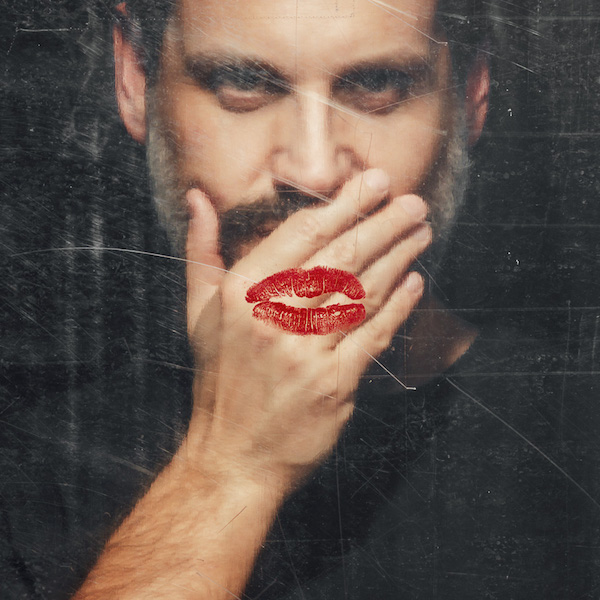
Dates: 20 July – 5 August 2018
20 – 22 July: first work session led by the Director Antonio Latella
23 July – 5 August: workshop with the Master
Language: Italian
For: actors, performers, photographers, visual artists, directors and anyone interested
Participants: 20
There will be a short presentation to the public of the final outcome of the workshop.
WORKSHOP
Photography has always sought to portray the kiss. The history of photography is filled with stolen kisses, public, sensual, spontaneous, posed. But the kiss may be found in all the visual arts. We will look at images that we will analyse through the eyes and experiences of a heterogeneous group of participants, who with different professional backgrounds, will meet to explore the polysemy of the images. Together we will try to elaborate a collective vision, a narration in many voices. Starting from the kiss, we will reflect on the approach to visual narration, especially the narration of the symbolic and the representation of theatre and its iconic language.
Guido Mencari
Guido Mencari graduated in Visual Semiotics from the Science of Communication Programme in Bologna, directed at the time by Umberto Eco. In his thesis, he analysed the work of artist Maurizio Cattelan based on the theories of Roland Barthes. He had his first professional experiences in 2010, as a photojournalist in Lucca. He currently travels between Italy and Europe. His passion for the theatre and his experience over the years have allowed him to photograph not only the works of some of the most important artists on the international scene, such as Jan Fabre, Sasha Waltz, Oskaras Korsunovas, Pippo Delbono, Emma Dante, Motus, but also those of young talents. His collaboration with Romeo Castellucci and the Socìetas Raffaello Sanzio began in 2011 with Sul concetto di Volto nel Figlio di Dio and continues to this day. Since 2013 he has been the official photographer for the Spill Festival of Performance, organized by the Pacitti Company in England, and other festivals around Italy. His work is based on an intellectual consideration of vision and the image, on photography as an idea. His visual research relies on the construction of stories, portraits, the documentation of events, exhibitions. But the performing arts remain his privileged field of inquiry into the amplified icon. Theatre in fact is the art form that is closest to reality and his representation of the symbolic transforms the rectangle of the frame into a space that explores life.
Foto Guido Mencari: autoritratto.
Applicants are required to provide the requested personal data as well as:
- a passport-size photograph
- a full-figure photograph
- a curriculum vitae in PDF format
- a presentation letter
- a portfolio of works
a letter of motivation
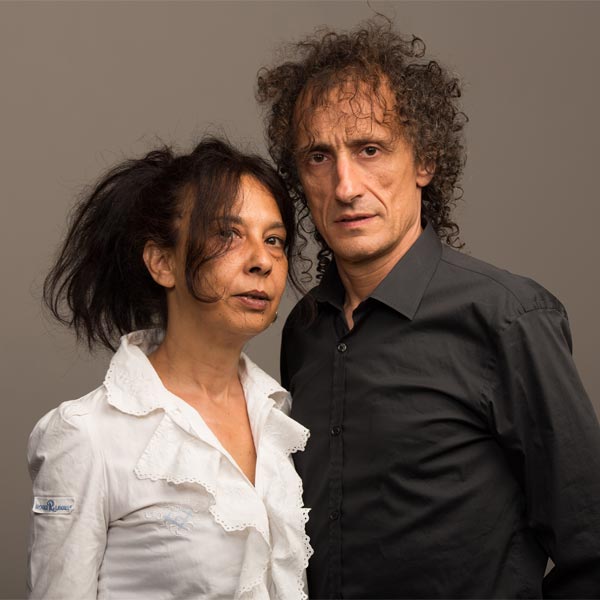
Dates: 20 July – 5 August 2018
20 – 22 July: first work session led by Director Antonio Latella
23 July – 5 August: workshop with the Masters
Language: Italian
For: open to everyone
Participants: 20
There will be a short presentation to the public of the final outcome of the workshop.
WORKSHOP
With the intent to explain the premises that will lead to the performance, we will look at the kiss and its significance today. We will compare its meaning to that of the passerby walking through Venice. The effusion goes beyond affection, expresses contact, the transmission of energy and an indispensable superficiality. The hypocrisy of politeness reigns supreme: it doesn't matter who the person in front of you is, what makes each kiss unforgettable is the hope that it will be the last. The actions will be choices, transcribed and re-enacted during rehearsals. Once the text has been established, we will move on to rehearsals of the performance to improve the rhythm, the sound and the lights. For the rest we confide in systematic randomness.
Flavia Mastrella and Antonio Rezza
work on involuntary communication. They have produced thirteen works for the theatre (including Barba e cravatta, Pitecus, Io, Fotofinish, Bahamuth, 7-14-21-28, Doppia Identità, Fratto_X and Anelante), five films (including Escoriandoli presented in Venice in 1996, Delitto sul Po and Milano Via Padova) and an endless series of short and medium-length films. In 1991 Barba e cravatta was presented at the Festival d'Avignon. Flavia Mastrella works with sculpture (MaMbo), photography, video-sculpture and Antonio Rezza in literature, publishing his novels with Bompiani (he won the Premio Feronia 2008 award for Credo in un solo oblio). Between 1996 and 1998 they created the programme Critico e Critici for Tele+, and in 2000 the programme Troppolitani for RAI 3. In 2008 they won the Premio Alinovi award and released the video collection Ottimismo democratico with Kiwido. In 2010 they presented Pitecus in Spanish in Madrid and Valencia, and performed with the Afterhours. In 2011, 7-14-21-28 was shown at the Théatre de la Ville in Paris and in 2013 at the Na Strastnom Theatre Center in Moscow. In 2012, Barbès published La noia incarnita, il teatro involontario by Flavia Mastrella and Antonio Rezza. In 2013 they won the Premio Hystrio and the Premio Ubu. In 2014 they published Clamori al vento with Saggiatore. In 2016 they won the Premio Napoli; that same year they presented Pitecus at La Mama theatre in New York. In 2017 they received the Certificate of Uniqueness in Culture and the Ermete Novelli Prize. They collaborate with TSI La Fabbrica dell'Attore Teatro Vascello and with the Fondazione Teatro Piemonte Europa.
Foto Flavia Mastrella & Antonio Rezza: G.Mazzi
Applicants are required to provide the requested personal data as well as:
- a passport-size photograph
- a full-figure photograph
- a curriculum vitae in PDF format
- a two-line sentence at your discretion without a theme
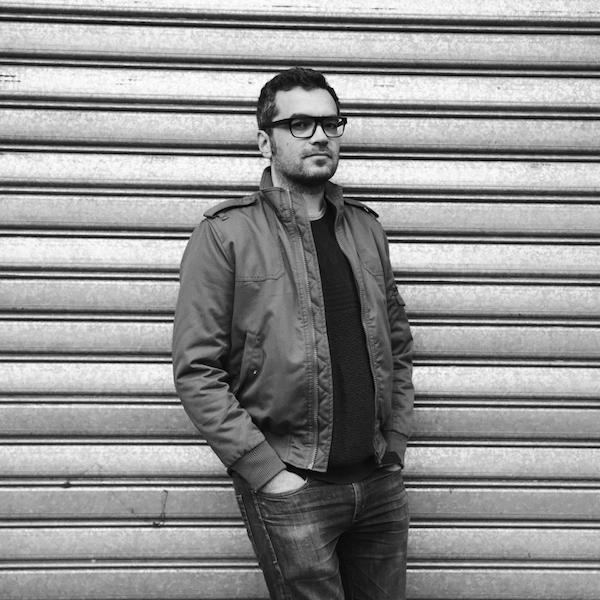
Dates: 20 July – 5 August 2018
20 – 22 July: first work session led by Director Antonio Latella
23 July – 5 August: workshop with the Master
Language: English
For: actors, dancers, performers
Participants: 16
There will be a short presentation to the public of the final outcome of the workshop.
WORKSHOP
Kiss by accident
Working around the idea of a kiss will be an opportunity to cross territories which are unexplored so far in my work. If, in the last creation, I used dialogues for the first time, it was nevertheless extreme solitudes that were put in play. This time, we will observe how it is possible to come into contact with one another, always questioning the notion of free will, and the conditions under which it is exercised. The question of desire will appear somehow, always connected to the notion of space, whether physical or mental, private or public.
Vincent Thomasset
Author, director and choreographer, he works around language, whether it is choreographic, literary or musical. He maintains an intimate relationship with fiction and tries to circumscribe the conditions in which this relationship appears. His pieces are as much explorations of the languages and codes of the theater, whether through his own texts (Sus à la Bibliothèque !, Les Protragronistes, Médail Décor, Galoooooop, Ensemble Ensemble) or by working on existing texts (Arsenic and Old Lace by Frank Capra for Bodies in the Cellar, Julien Prévieux’s Lettres de non-motivation). His abundant writing exhausts the words by declining all possible meanings, restoring language to a literality that it could have lost, and finds in the bodies of its interpreters an ideal alter-ego. After studying literature in Grenoble, he discovered theater by accident, and worked in a cinema for six years before becoming a performer for Pascal Rambert from 2003 to 2007. In 2007 he followed the formation E.xe.r.ce at the CCN of Montpellier and began to develop his own work. He first created performances before creating his first show in 2011.
The company Laars & Co, created in 2012, is subsidized by the Ministry of Culture and Communication, supported by the DRAC Île-de-France in the frame of “aide à la compagnie chorégraphique”.
Applicants are required to provide the requested personal data as well as:
- a passport-size photograph
- a full-figure photograph
- a curriculum vitae in PDF format
a video of themselves reading a text related to the act of kissing in its many forms (novel, theatre, excerpt of film)
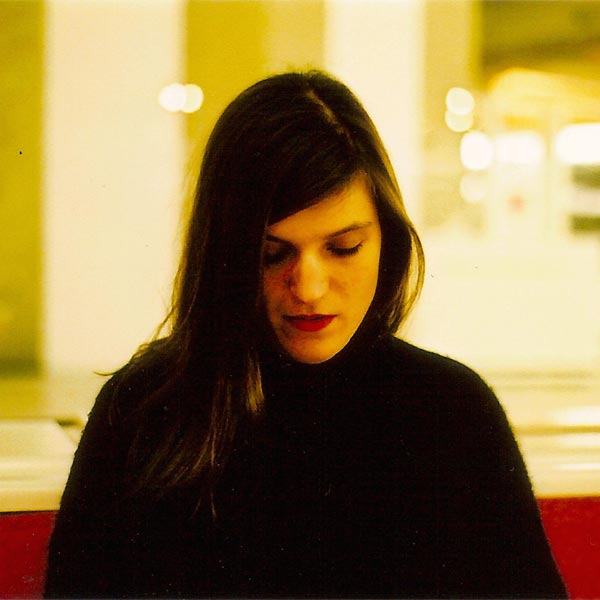
Dates: 20 July – 5 August 2018
20 – 22 July: first work session led by Director Antonio Latella (optional only for this workshop)
26 July – 5 August: workshop with the Masters
Language: English
For: dancers and actors with strong physical skills
Participants: 16
There will be a short presentation to the public of the final outcome of the workshop
WORKSHOP
Based on the formal works created for my new piece Crowd and the experimental films of Martin Arnold, we will work on the development of a type of writing that is constructed through the multiple stylization of movements, inspired by the techniques of cinema and the techniques of video editing. The stylization we seek is not a imitation of these retouched movements, but a very intimate interpretation motivated by the emotions and the intentions that can drive the performers, the way they listen and capture what is going on around them.
We are interested in the very particular musical and narrative force of this type of writing, and the realms of the possible that they open in the domain of improvisation. We will use these rules of writing and improvisation to explore the theme of the kiss, with my long-time assistants, dancers and choreographers Núria Guiu Sagarra and Anja Röttgerkamp.
Gisèle Vienne
Gisèle Vienne was born in 1976. She is a Franco-Austrian artist, choreographer and director. After graduating in Philosophy, she studied at the puppeteering school Ecole Supérieure Nationale des Arts de la Marionnette. There she met Etienne Bideau-Rey with whom she created her first shows.She works regularly with, among other, the writers Dennis Cooper and Catherine Robbe-Grillet, the musicians Peter Rehberg and Stephen O'Malley, the light designer Patrick Riou and the actor Jonathan Capdevielle. Since 2004, she has choreographed and directed, in collaboration with the writer Dennis Cooper, I Apologize (2004) and Une belle enfant blonde / A young, beautiful blond girl (2005), Kindertotenlieder (2007) and Jerk, a radioplay within the framework of the “atelier de création radiophonique” of France Culture (June 2007), the play Jerk (2008), Eternelle Idole (2009) with an ice skater and an actor, This is how you will disappear (2010), LAST SPRING: A Prequel (2011), Showroomdummies #3, a rewriting of the piece created in 2001 with Etienne Bideau-Rey that is now part of the CCN-Ballet de Lorraine repertoire, The Pyre (2013), The Ventriloquy Convention (2015) in collaboration with Puppentheater Halle and Crowd (2017). Since 2005, she has been frequently exhibiting her photographs and installations. Gisèle Vienne, Dennis Cooper, Peter Rehberg and Jonathan Capdevielle published an audio book in 2 versions, French and English: JERK / Through Their Tears (publisher DIS VOIR). She has published a book, 40 PORTRAITS 2003-2008, in collaboration with Dennis Cooper and Pierre Dourthe (publisher: P.O.L). She is currently working on a show based on the short story Der Teich by Robert Walser.
Photo Gisèle Vienne: Patric Chiha
Núria Guiu Sagarra
Núria Guiu is from Barcelona. She graduated from the Institut del Teatre where she also worked with the young company IT Dansa. She then worked as a freelancer on projects and with companies such as Culbergbaletten, Gisele Vienne, Ingri Fiksdal, Kobal Works, Carte Blanche Dance Company, Kamuyot (Batsheva Dance Company/Riksteatern Sweden), Jasmin Vardimon, La Veronal, among others. She is also interested in choreography and has created a short piece for a commission from Carte Blanche Dance Company. Portal is a solo work that premiered at the Oktoberdans Festival in Bergen and was later performed at Sala Hiroshima in Barcelona. Likes, her latest solo work is part of Aerowaves 2018. She also worked as a choreographer assistant/collaborator with Arco Renz (Kobalt Works) for 4 years in projects developed in Asian countries such as Cambodia, Philippines, Vietnam, Korea. Nuria is currently assisting Gisele Vienne's work Crowd.
Anja Röttgerkamp
Anja Röttgerkamp was born in Germany in 1969. She currently lives in Brussels, Belgium. She has performed for several choreographers in Germany, France (‘L’Esquisse’, Marco Berrettini), Italy (Rafaella Giordano) and Belgium (Louise Vanneste, Ayelin Parolin). Since 2004 she has been working with Gisèle Vienne (I Apologize, Une belle enfant blonde / A young, beautiful blond girl, Showroomdummies, rewriting of Etienne Bideau Rey and Gisèle Vienne and). She is currently assisting with Gisele’s Vienne work Crowd by advising and guiding the dancers movements in The Pyre.
Applicants are required to provide the requested personal data as well as:
- a passport-size photograph
- a full-figure photograph
a curriculum vitae in PDF format